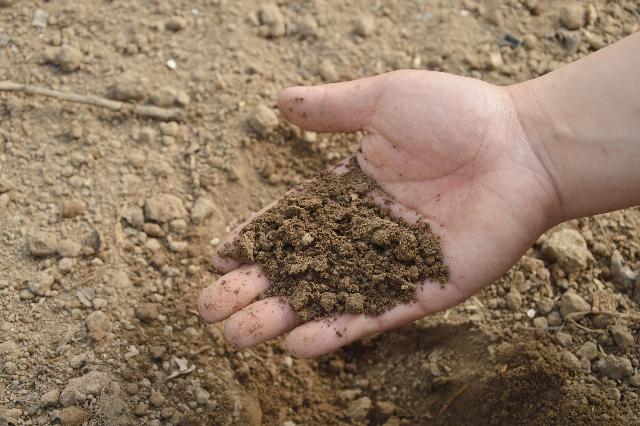How to make garden soil
You always want to start with healthy soil. You can get a soil testing
kit from your local extension agent. Let them know you’re trying
organic farming and they’ll give you lots of expert tips.

You need to know whether or not your soil is healthy enough before
you put the first plant into the ground.
For many of us urban dwellers, the soil has been depleted of nutrients
or simply trucked in for construction purposes. A good soil
test will also give you expert recommendations on how to fix
whatever may be wrong.
Soil pH, for example, is important for helping your plants access
the nutrients they need in that soil. The pH tells how acidic or alkaline
your soil may be.
The most important soil component is the organic matter, like
manure, peat, moss, pumice or compost. Your finished soil should be neither
sandy nor too compact.
When the mix is right, the soil will bind together when squeezed,
but break back apart if disturbed. It will retain enough water without
saturating your plants.
Compost is the best option for organic matter because it contains
decayed micro-organisms from plants and is naturally healthier
for your crops. You can make your own compost heap or buy
ready-made compost at the garden store. Be sure to look for organic
compost however.
Reduce weed growth by spreading a one- to three-inch layer of
mulch on top of your soil. This will also lessen fungal disease
spores landing on your plants and will keep the plants cooler in
summer and warmer in winter.
Use an organic material like cocoa-hulls, weed-free straw, or even
newspaper. These will also add beneficial organic matter to your
soil as they decompose. You may or may not need fertilizer, depending
on how good your original soil is.
If you feel you need it, look for well-rotted manure from plant eating
animals like horses, rabbits, sheep, or chickens. You can
also buy organic fertilizer at your garden store.
Be careful though! Too much nitrogen (the first number on the
fertilizer package) will give you lush green plants – but fewer veggies
to harvest. It’s best to get your soil as healthy as possible
without resorting to fertilizer.
Find Garden Soils Here

